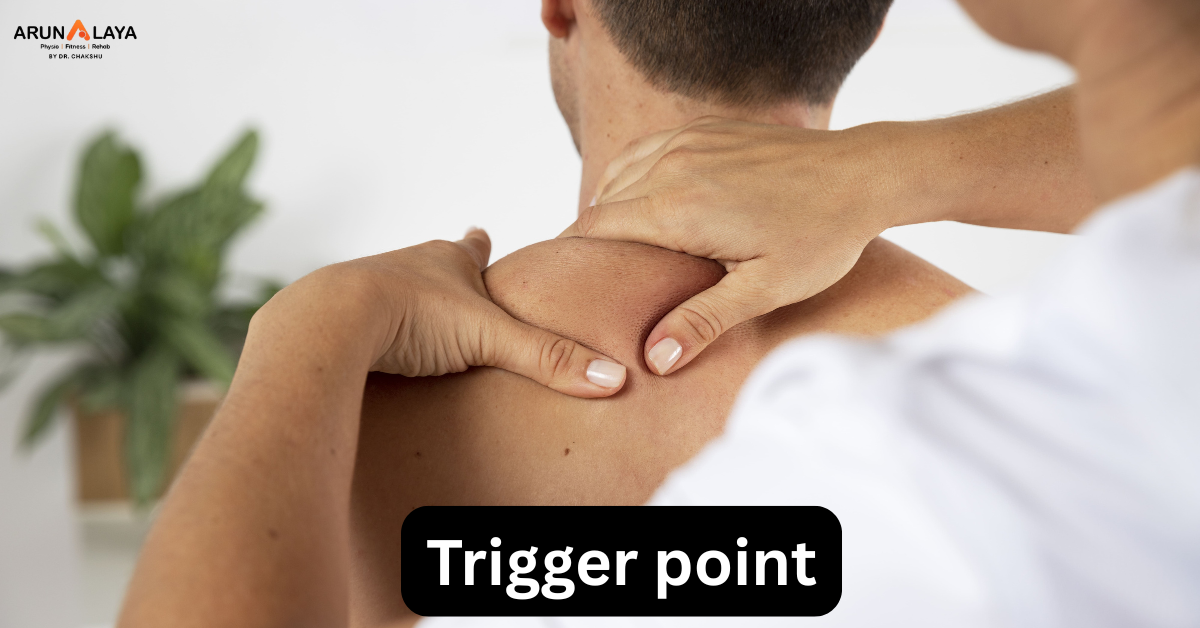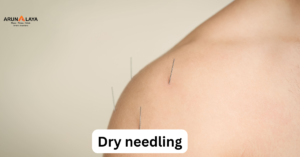Introduction
Trigger point release is an essential technique in physiotherapy used to treat muscle pain, stiffness, and limited mobility. Trigger points are often located centrally within a muscle fiber, though this may differ depending on muscle architecture. Releasing these trigger points plays a crucial role in improving muscle function, posture, and flexibility.
What is Trigger Point Release?
Generally, the location of a trigger point is central in a muscle fibre. But if the architecture of the muscle is not fusiform, then it may differ. Since decades, trigger point is released by ischemic compression through the thumb over the trigger point and holding the sustained pressure for a few seconds.
This technique is no longer recommended due to its painful nature. Moreover, it was objected to because it created more ischemia in an already ischemic area. Consequently, the technique was renamed as trigger point release. The basic principle of the technique remained the same, but the pressure was altered, making it less painful. The purpose of trigger point release is to flush in blood into the trigger point when pressure is applied.
Importance of Trigger Point Release
1. Pain Relief
Trigger point release helps to reduce pain by improving blood flow to the affected areas.
2. Reduce Muscle Tension
This technique relaxes tense muscles, reducing muscle spasm and stiffness.
3. Improve Range of Motion
Trigger point release increases flexibility and range of motion by releasing tension in the muscles and connective tissue.
4. Enhanced Athletic Performance
Trigger point release can improve athletic performance by reducing muscle tension, improving flexibility, and enhancing muscle function.
Benefits for Thoracic Pain
Trigger points in the muscles surrounding the thoracic spine (mid-back) can contribute to pain, stiffness, and limited movement. Releasing these trigger points can improve posture, reduce pain, and increase flexibility.
Advanced Machines for Thoracic Pain
In addition to trigger point release, several advanced machines can be used to treat thoracic pain. These machines use various technologies such as:
- Ultrasound
- Electrical stimulation
- Laser therapy
These technologies help to reduce pain and inflammation effectively.
Benefits of Advanced Machines for Thoracic Pain Relief
- Targeted Treatment: Machines can be used to target specific areas of pain.
- Non-Invasive: Most machines are non-invasive and do not require surgery.
- Reduced Pain and Inflammation: Machines can help to reduce pain and inflammation in the thoracic spine.
- Improved Healing: Some machines can promote healing and tissue regeneration.
Conclusion
The importance of trigger point release is essential in physiotherapy, as it helps to reduce pain and discomfort caused by trigger points in the body. A therapist uses manual pressure to release these trigger points, which form nodules that can only be treated through release.
At Arunalaya Physiotherapy, we focus manually on trigger point release using techniques like:
- ART (Active Release Technique)
- MET (Muscle Energy Technique)
These methods provide highly effective treatment.
Treatments at Arunalaya Physiotherapy for Thoracic Pain

- Manual therapy
- Trigger point release
- Dry needling
- Electrotherapy
- Exercise therapy
- Postural correction
Want to be a Physical Therapist? Check Physioneeds Academy





